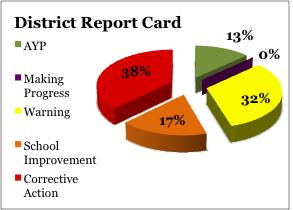
Mayor Michael Nutter wanted to raise additional money for schools by implementing the Actual Value Initiative in 2012. Now the mayor says AVI will be revenue neutral.
“The city is not ready to implement [AVI]. It doesn’t have all the data,” said Doerte Smith, a longtime resident and voter of Graduate Hospital. “Luckily Councilman Johnson is right with his constituents.”
Schools are also a top priority for Councilman Kenyatta Johnson and his constituents. The E. M. Stanton Elementary School was slated to close in 2011. After the community mobilized to “Save Stanton,” Councilman Johnson asked the Goldenberg Group to adopt the school. The Goldenberg Foundation worked with Stanton’s School Advisory Council and local businesses to organize volunteers to paint the walls. Additional funds went to school supplies for low-income families.
“Due to the young people, and due to parent involvement, who really want to see their children enrolled in local schools, we have [Arthur] and [Stanton],” Smith said. “Two great schools! Finally! After all these years!”
Whether or not the city’s schools are great depends on whom you ask.
The No Child Left Behind Act requires schools receiving Title I funding to make Adequate Yearly Progress. AYP is based on standardized math and reading test scores. Failure to make AYP could result in conversion to a charter school, among other corrective action.
“Schools are making small progress. But to say there’s one definition of success, which is what No Child Left Behind is with AYP, I think that’s a false way to take the idea of improving schools,” Oscar Wang said. He teaches the Civics and Rhetoric enrichment program at Stanton.

Only 13 percent of the district’s schools made Adequate Yearly Progress. Most of the schools are facing corrective action, according to the District Report Card.
Stanton made Adequate Yearly Progress eight consecutive years. The Chester A. Arthur Elementary School made AYP three consecutive years. But, they both missed it in 2012, according to the Pennsylvania Department of Education.
“We literally missed it by just a few students,” said Michael Franklin, who teaches math, science and a civil engineering club at Arthur.
Social policy overemphasizes smarts. It should focus on the early years. That’s when skill gaps emerge, which can be traced to adverse early environments, according to James Heckman’s Schools, Skills and Synapses. He is one of the nations top economists studying human development.
Early childhood programs benefit students in academic achievement and behavior. Better-trained caregivers and smaller child-to-staff ratios appear to offer more favorable results, according to the RAND Corporation.
The Christian Street YMCA Child Development Center provides an early childhood program that is rated through Keystone Stars. “[It] is a little tougher than being licensed,” said Executive Director Michele Stevenson. “There’s a lot more centers [and] the staff are hired different because they have to have degrees so that you’re getting a quality education.”
The Child Development Center offers scholarships to economically disadvantaged families and it invites parents to participate in their child’s classroom.

“Education doesn’t start at any one age. It starts when you’re born. Your parents are your first teachers,” Wang said.
Students with involved parents, regardless of family income, are more likely to earn higher grades and test scores, have better attendance and social skills and graduate, according to the Southwest Educational Development Laboratory.
“As a charter school, we have a little bit of that advantage of somewhat self-selected parents in terms of being involved because they were at least involved and informed enough to submit an application for the lottery,” Jenny Hoedeman-Eiteljorg said. She is Independence Charter School’s Family and Community Partnerships Coordinator.
The closure of 23 schools will increase child-to-staff ratios. And converting schools into charters may not correct the educational gap. Many charter school’s employ non-highly qualified teachers. Universal Institute and Independence charter schools both missed Adequate Yearly Progress in 2012, according to the Pennsylvania Department of Education.
“Because the scores of our special education students didn’t improve enough, we didn’t make AYP,” Hoedeman-Eiteljorg said. “Luckily, as a charter school, we can immediately do things to address it. We added one and a half special education jobs in order to be able to give more attention to those students.”

“That’s another advantage of being a stand alone school. We get to make all the decisions ourselves on where we put the resources.”
Despite the many advantages of charter schools, all schools have the same needs.
“You have great schools of all kinds,” Wang said. “It’s not what the title of the school is. Everyone knows what should be in a good school. You need resources.”
Increasing taxes and struggling schools have Grad-Ho residents weighing their options.
“I have seen neighbors across the street from me move away because they needed to consider ‘where am I going to put my children when they are 5 and 6 years old?’” Smith said.
Despite receiving 60 percent of the city’s property tax revenue, the school district needs more money. Michael Franklin spent about $5,000 on his Arthur classroom over the past four years and sought support from the community to raise another $7,000. He encourages residents to get involved in programs like DonorsChoose.org and Friends of Chester Arthur.
“People [say] ‘the schools in Philadelphia suck. Why am I going to spend the money on taxes instead of moving out to the suburbs and getting a better schooling?’ Instead of moving, why not put that time and effort into helping make your neighborhood schools a place you would be willing to send your son or daughter?”

Be the first to comment